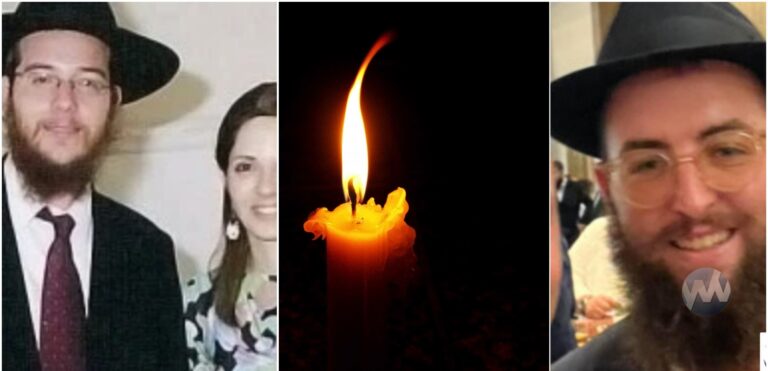Five yeshiva students-from Brooklyn and Monsey, New York and Edison, New Jersey and their wives and children-have moved to New Haven to spend their days learning and teaching as part of the New Haven Community Kollel.
In describing the mission of a kollel, which in New Haven is located in a large, old home at 820 Elm Street, Rabbi Dov Greer, Rosh Kollel, notes, “Learning is a central facet of the Jewish experience, and we have a life-long obligation to study.”
Greer points out that, historically, communities have had a select group of people engaged in full-time Torah study. Kollels of various sizes exist throughout the Jewish world. Lakewood, New Jersey is well-known for its yeshiva, and Waterbury has grown in size and in popularity in recent years as a result of its kollel.
“Studies have shown that, in a small town, a kollel provides an anchor and leads to an influx of young families,” reports Greer. “A kollel gives a city a focus, and it provides an opportunity for members of the community to learn Torah and to have an additional Jewish resource.”
Kollel participants, known as “avreichim,” must be married and receive a stipend for their learning. Some are in rabbinical training programs, and others hope to obtain more “real-world” rabbinate experiences offered outside of a larger yeshiva community.
At the New Haven Community Kollel, five men and Rabbi Greer pray at morning services at various synagogues in the New Haven community. The men, who with Rabbi Greer are studying practical halachah-Jewish laws of daily experience and life- begin their morning studies at 9 a.m. and continue nonstop until 12:30 p.m., when they return home to their spouses and children for lunch and home responsibilities. The men will be studying laws of family life for at least one year, then move on to laws of Shabbat and laws of kashrut.
“They begin the morning learning with a sugya from the Gemarrah (a paragraph from the Talmud), and learn it down to the halacha (laws),” reports Greer. At 2 p.m. the men return to the kollel and study different parts of the Talmud. At 5:30, the men again return home for family time, before returning once more to the yeshiva for an additional hour and a quarter shiur (lesson).
Teaching in the area
While the kollel students are engaged in a rigorous program of study, there is a strong emphasis on community involvement and service for the students and their wives.
On Wednesday evenings and often on Sunday evenings, men from the community-including local doctors, businessmen and a B’nai B’rith Youth Organization director-come to learn Talmud and other texts one-on-one with the avreichim. Greer says that given the schedule of community members he has been somewhat flexible in setting up learning times.
On Sunday evenings, Greer’s wife, Sima, leads “Sundaes on Sunday” for young women in grades nine and up.
Devorah Lomnitz enjoys participating in the Tuesday morning class offered to women by Kayla Hack.
“We have a babysitting rotation, so the children are cared for,” says Lomnetz.
The kollel has also offered various classes and lectures for local rabbis and for members of the community.
Greer concludes, “A community can’t survive without a base in Torah. New Haven has an infrastructure-kosher restaurants, an eruv, mikvah, Jewish Federation, JCC, more than one Jewish day school and a smorgasbord of shuls. These are all important, but none can survive without an anchor in Torah.”











One Response
New Haven is a beautiful little city with a rich history as a Jewish community. The very first full time “out of town” yeshiva in America was founded there in the 1920s by Rav Yitzchok (?) Levenberg.